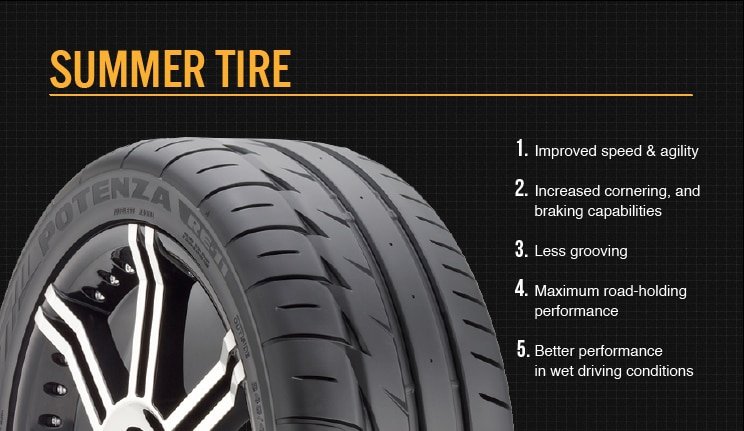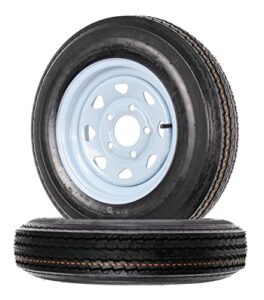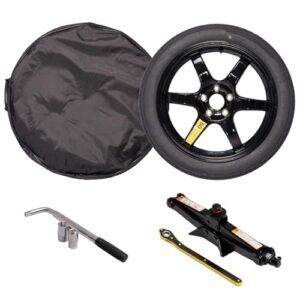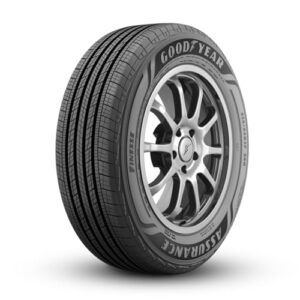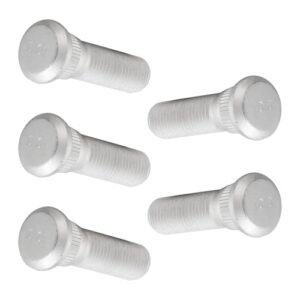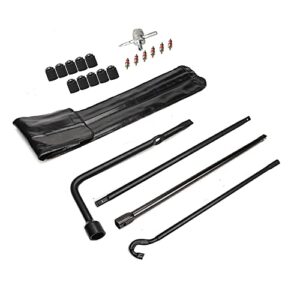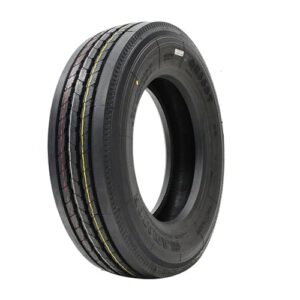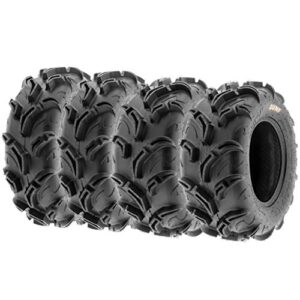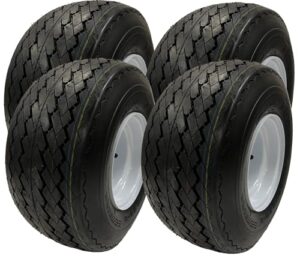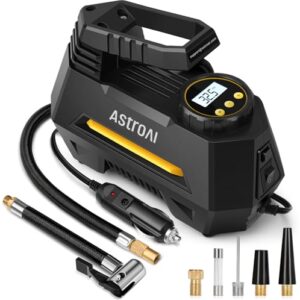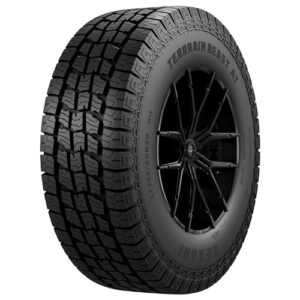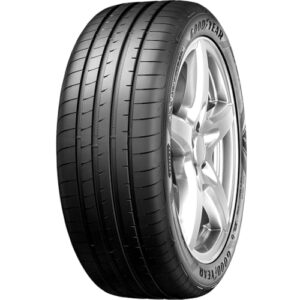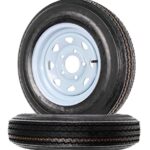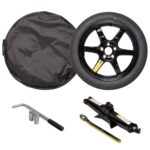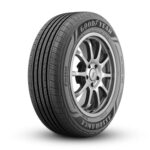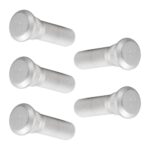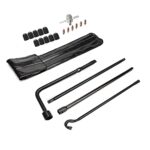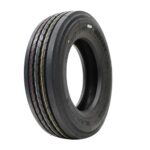Summer tires offer superior handling and improved performance on dry and wet roads. They provide better fuel efficiency in warm weather.
Summer tires are specifically designed for optimal performance in warm weather conditions. The unique rubber compounds used in their construction allow for better grip and traction on both dry and wet roads. Tread patterns on summer tires are engineered to maximize contact with the pavement, enhancing handling and braking capabilities.
These tires also contribute to improved fuel efficiency, as their reduced rolling resistance requires less energy. Using summer tires ensures a smoother and more responsive driving experience during the hotter months. By switching to summer tires, drivers can enjoy improved safety, better control, and increased overall vehicle performance.
Improved Grip
Summer tires offer many advantages, but the most significant is improved grip. This improved traction ensures better handling and safety in warm weather. Let’s explore how summer tires achieve this through their tread design and rubber compounds.
Tread Design
Summer tires feature a unique tread pattern. The design often includes fewer grooves and sipes. These elements increase the contact area with the road. More contact means better grip. This is crucial for high-speed stability and cornering.
Here’s a simple breakdown of the benefits of summer tire tread design:
- Fewer grooves: Increase road contact.
- Larger tread blocks: Increases stability.
- Specialized patterns: Maximizes dry and wet traction.
Rubber Compounds
Summer tires use special rubber compounds. These compounds remain flexible in warm weather. Flexibility boosts grip and reduces stopping distances. They offer better performance compared to all-season tires in summer.
Here are some key features of the rubber compounds used in summer tires:
| Feature | Benefit |
|---|---|
| Higher silica content | Improves traction and durability |
| Heat resistance | Prevents tire degradation |
| Improved elasticity | Maintains grip on hot surfaces |
These compounds ensure the tires perform optimally in summer. They provide better handling, braking, and overall safety. Investing in summer tires can make a significant difference in your driving experience.

Increased Handling
Summer tires are known for their improved handling capabilities. They are designed to offer optimal performance in warm conditions. This makes them perfect for summer driving. With improved grip and responsiveness, summer tires ensure a smooth and safe ride.
Cornering Stability
Summer tires provide excellent cornering stability. Their unique tread patterns help maintain grip during sharp turns. This reduces the risk of skidding. The rubber compound used in summer tires remains flexible in warm weather. This flexibility ensures better contact with the road.
Here are some features that contribute to cornering stability:
- Improved tread patterns
- Special rubber compounds
- Improved sidewall strength
Steering Precision
Summer tires offer unmatched steering precision. Their design allows for quick and accurate responses to steering inputs. This ensures better control of the vehicle. The stiffer sidewalls of summer tires play a crucial role in this.
Key elements of steering precision include:
| Feature | Benefit |
|---|---|
| Stiffer sidewalls | Improved control |
| Unique tread design | Quick response |
| Rubber composition | Better grip |
With these features, summer tires ensure a safer and more enjoyable driving experience. They provide the necessary confidence and control for summer driving adventures.
Better Performance In Warm Weather
Summer tires excel in warm weather. They provide optimal performance on hot roads. These tires ensure safety and efficiency during warmer months. Understanding their benefits can help you make an informed decision.
Temperature Adaptability
Summer tires have a special rubber compound. This compound adapts to high temperatures. The tires stay flexible in heat. This flexibility offers better grip and control. Your car handles better on hot roads.
Heat Dissipation
Summer tires have unique tread patterns. These patterns help dissipate heat. Excess heat can damage tires. Proper heat dissipation prevents this damage. Your tires last longer and perform better.
| Feature | Benefit |
|---|---|
| Special Rubber Compound | Adapts to High Temperatures |
| Unique Tread Patterns | Efficient Heat Dissipation |
- Better grip and control
- Increased tire lifespan
- Improved safety on hot roads
Choosing summer tires ensures your car performs well in warm weather. Enjoy a safer and smoother drive.
Shorter Braking Distance
One of the primary advantages of summer tires is their ability to offer a shorter braking distance. This feature is crucial for ensuring safety and performance during warmer months. The specialized rubber compounds and tread designs help provide better grip on dry and wet roads.
Stopping Power
Summer tires are engineered for maximum stopping power. The unique tread patterns increase traction. This leads to quicker stops on both dry and wet surfaces. Unlike all-season tires, summer tires have fewer grooves. This increases the contact area with the road. More contact means more grip, which results in shorter braking distances.
Safety Implications
Shorter braking distances have significant safety implications. In emergency situations, every inch counts. Stopping sooner can prevent accidents and save lives. For example, consider the following table:
| Condition | Summer Tires | All-Season Tires |
|---|---|---|
| Dry Road | 120 feet | 140 feet |
| Wet Road | 140 feet | 160 feet |
The table shows the stopping distances for different tire types. Summer tires stop faster on both dry and wet roads. This reduced stopping distance can be the difference between a close call and a collision.
For families, this means added peace of mind. For daily commuters, it means fewer risks on the road. The improved stopping power provided by summer tires increases overall vehicle safety.
Increased Fuel Efficiency
Summer tires can boost your car’s fuel efficiency. These tires are designed for warmer weather. They help your car use less fuel.
Rolling Resistance
Rolling resistance is how much force is needed to keep your tires moving. Summer tires have lower rolling resistance. This means your car doesn’t need as much energy. Lower rolling resistance helps save fuel.
Summer tires also have special tread patterns. These patterns reduce friction. Less friction means better fuel efficiency. You can drive more miles with less fuel.
Economic Benefits
Using summer tires can save you money. Here are some economic benefits:
- Lower fuel costs: Better fuel efficiency means fewer trips to the gas station.
- Longer tire life: Summer tires are made for warm weather. They wear out more slowly in hot conditions.
- Better performance: Your car runs better with the right tires. This can reduce maintenance costs.
Investing in summer tires can be cost-effective. You save on fuel and maintenance. Your car performs better. Summer tires are a smart choice for warm weather driving.
Longevity And Durability
Summer tires are well-known for their longevity and durability. These tires are designed to last longer and perform better in warm weather. Let’s explore their benefits under the subheadings of Wear Resistance and Seasonal Usage.
Wear Resistance
Summer tires offer excellent wear resistance. They are made from a special rubber compound. This compound is designed to withstand high temperatures. It reduces the rate of wear and tear.
Here are some key points about wear resistance:
- Harder rubber compounds for longer life.
- Better traction on hot surfaces.
- Less deformation under stress.
Their tread patterns also help in reducing wear. They are optimized for summer conditions.
Seasonal Usage
Summer tires are best used in warm weather. They are not suitable for winter conditions. Their design focuses on performance in summer.
Consider these points for seasonal usage:
- Perfect for temperatures above 45°F (7°C).
- Improved grip on dry and wet roads.
- Improved fuel efficiency in summer.
Using them in the right season extends their lifespan. It ensures you get the most out of your tires.
Here’s a quick comparison table:
| Feature | Summer Tires |
|---|---|
| Temperature Range | Above 45°F (7°C) |
| Wear Resistance | High |
| Optimal Usage | Summer |
Perfect Applications
Summer tires are essential for specific vehicles. They excel in warm weather. Here are some perfect applications for summer tires.
Sports Cars
Sports cars demand high performance. Summer tires provide excellent grip on dry roads. This increases the car’s speed and control.
- Improved handling on curves and turns
- Better traction at high speeds
- Improved braking performance
Summer tires have unique tread patterns. These patterns aid in rapid acceleration. They also offer superior cornering abilities.
High-performance Vehicles
High-performance vehicles benefit greatly from summer tires. These vehicles need tires that match their power.
| Feature | Benefit |
|---|---|
| Heat resistance | Prevents tire wear in hot weather |
| Stiffer sidewalls | Provides better stability at high speeds |
| Unique rubber compound | Increases overall performance |
High-performance vehicles require tires that can handle extreme conditions. Summer tires ensure optimal performance in such scenarios.

Frequently Asked Questions
What Is The Disadvantage Of Summer Tires?
Summer tires perform poorly in cold conditions. They lack grip on snow and ice, leading to unsafe driving.
Do Summer Tires Make A Difference?
Yes, summer tires make a significant difference. They offer superior grip, handling, and performance in warm weather conditions.
Do Summer Tires Get Better Gas Mileage?
Yes, summer tires usually get better gas mileage. They have less rolling resistance and provide improved fuel efficiency.
Is It Worth Changing To Summer Tires?
Yes, switching to summer tires is worth it. They offer better grip, handling, and fuel efficiency in warm weather.
Conclusion
Summer tires offer improved performance and safety during warm weather. They provide better grip and handling on dry roads. Investing in summer tires can improve fuel efficiency and driving comfort. Make the switch to enjoy a smoother, safer ride this summer.
Embrace the benefits of summer tires for optimal driving experiences.


